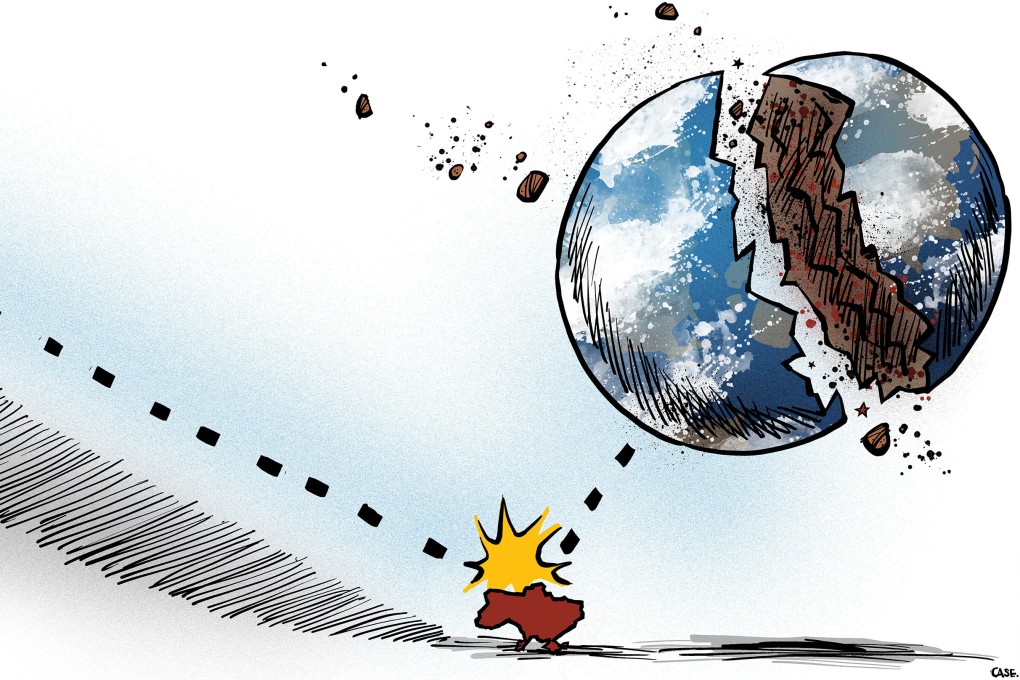Advertisement
Opinion | China has much to lose as war in Ukraine turns Europe away from globalisation
- Optimism about globalisation could be snuffed out for a long time, making the outlook for China and its deeply global value chains problematic
- How China chooses to respond could deepen Western fears – or begin the long process of nurturing a new form of sustainable cooperation
Reading Time:4 minutes
Why you can trust SCMP
11

The post-Cold War system of globalisation that helped drive the spectacular growth of East Asia has steadily eroded in recent years. Trade wars, securitisation of supply chains, ethno-nationalism and the pandemic have all taken a toll.
Advertisement
Will Russia’s brutal invasion of Ukraine be the last straw for globalisation? That is a rapidly forming view in Europe. Not only has the war led to Russia’s isolation by the developed world, but it has cut off crucial Belt and Road Initiative routes and has the secondary effect of deepening Western distrust and fear of China.
A newly solidified European consensus fears global interdependence with economies that do not share its liberal values. Without trusted connectivity with the wealthy US and European markets, it will be much harder for China to lead the next phase of globalisation.
A few years ago, developed economies from Germany to Australia were enthusiastically integrated with Chinese supply chains, seemingly proving that economic interdependence could overcome differences in political systems. While there remain powerful economic and other arguments for such countries to keep investing in rules-based economic cooperation, security concerns may well trump economics.
The United States initially abandoned engagement with China in favour of economic warfare, but it soon morphed into a security competition framed – as often in the US – as a battle of values. At first, Europe considered itself aloof from ideological narratives emanating from the US about its contest with China. That aloofness is no more.
In response to Russia’s recent actions, Germany is investing €100 billion (US$109 billion) in rearmament that is unprecedented in modern times. Across Europe, a new unity is evident and there is even earnest talk of building a European defence force. Among Europe’s opinion leaders, Russia and China are commonly grouped together, and distrust of China is deepening as a result.
Advertisement
All major economies are looking to reduce strategic vulnerabilities and strengthen self-reliance, which could yet see a further fracturing of supply chains to reduce exposure to apparent risks. China, as the biggest beneficiary from globalisation, may be the biggest loser in globalisation’s demise as a new, more divided world order takes shape.
To be sure, the conflict in Ukraine is not the only war that has undermined the international order. The 2003 US invasion of Iraq was an equivalent snub to the United Nations Charter, dismaying many Europeans. Nevertheless, the Russian invasion of Ukraine has shaken Europe in a way that only war in Europe can, and has united the West overnight.

Advertisement
